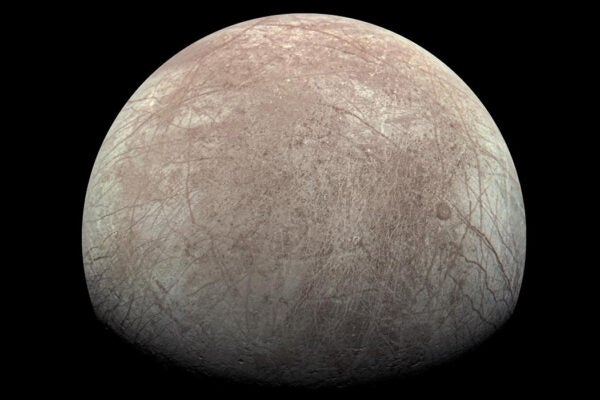Garbage on the Final Frontier
We’ve trashed Earth, so let’s trash space… Oh, wait, we already have!
Skylab, Sealab, and the Psychology of the Extreme
During the Cold War, small groups of Americans lived together in space and at the bottom of the sea, offering psychologists a unique study opportunity.
When Everything in the Universe Changed
The revolutionary James Webb Space Telescope and next-gen radio telescopes are probing what’s known as the epoch of reionization.
The Moon Might Be Older Than Scientists Previously Thought
A new study shines light on its history.
The Arecibo Message Fifty Years Later
In November 1974, astronomers used the radio telescope at Puerto Rico's Arecibo Observatory to send a hello to the universe.
NASA’s Europa Clipper
The spacecraft will investigate whether an icy moon of Jupiter can support alien life.
Snowball Earth
How scientists discovered that unique Scottish rocks record when Earth was first encased in ice.
Meteorite Strike in South Africa
Scientists offer clues about what it is and where it came from.
Astronomers Have Warned against Colonial Practices in the Space Industry
A philosopher of science explains how the industry could explore other planets without exploiting them.
Meteorites from Mars
Meteorites that come from Mars help scientists understand the red planet’s interior.









